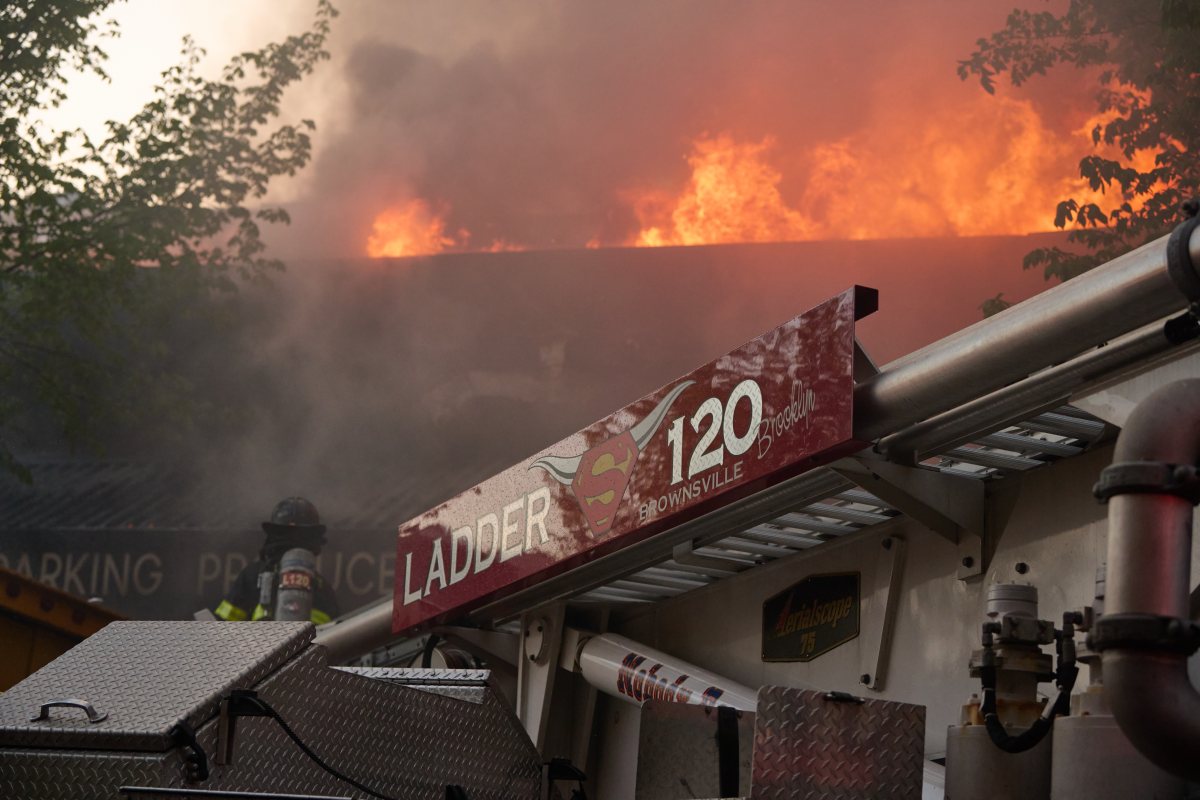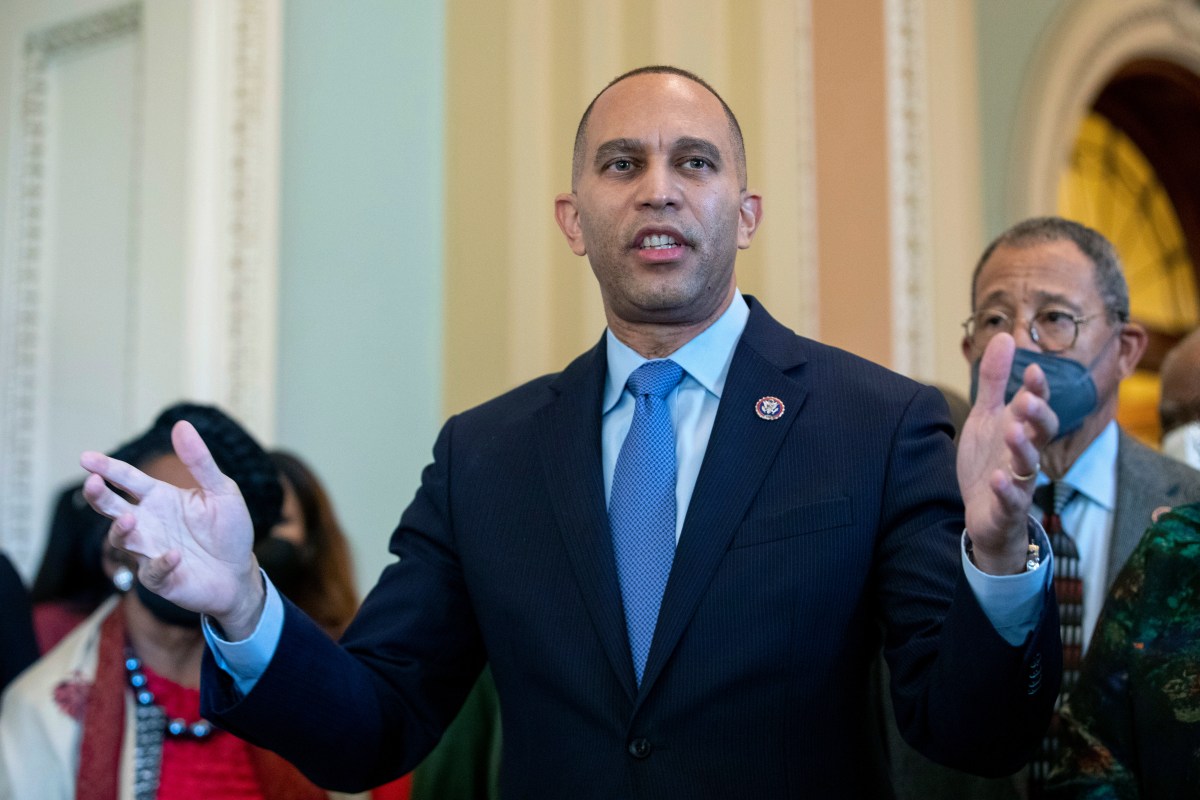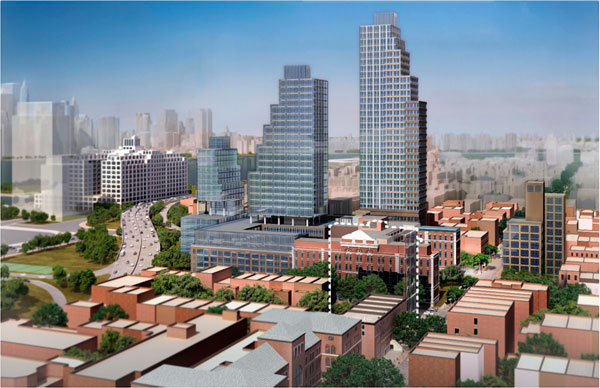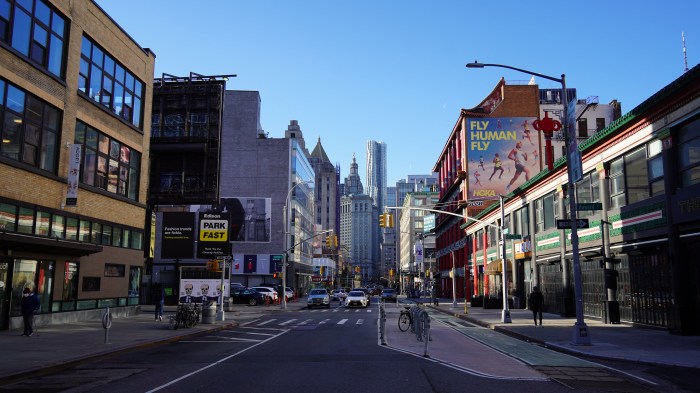A private investment firm has been rapidly buying up real estate around Park Slope and jacking up rents — leaving dozens of cash-strapped tenants scrambling to find a solution.
“They are going after young families. They are going after people who already have a lot of stress on them,” said Anh-Thu Nguyen, a tenant of 70 Prospect Park West.
The private-equity backed real estate firm Greenbrook Partners snapped up Nguyen’s building earlier this year, adding it to their growing catalog of roughly 80 other buildings in the surrounding area, and have been informing tenants that they will not be renewing their leases.
The situation has become so widespread that the residents of Greenbook’s various properties are banding together, re-forming tenant associations in some buildings, to make contact with tenants and work to keep people in their homes.
“We’re just families trying to stay in our apartments,” said Tyler Penn, another renter at 70 Prospect Park West. “That’s what this is all about.”
According to its website, the Manhattan-based company specializes in “undercapitalized assets located in growth-oriented and transitional submarkets of New York City” and “creates value through rigorous property management, asset management, repositioning, and redevelopment.”
Among the buildings which the firm has purchased during the pandemic include two adjoining properties at the corner of Fourth Avenue and 11th Street, along with 225 13th St., 157 Fifth Ave., and 38 Prospect Park Southwest.
Many of those buildings have already been vacated of their former market rate tenants, and the landlord is in the process of renovating the units to rent for a substantial markup.
“This gross business entity was spawned during a global pandemic, and they’re coming in like a thief in the night to buy up all these buildings while there’s vulnerability,” Penn said.
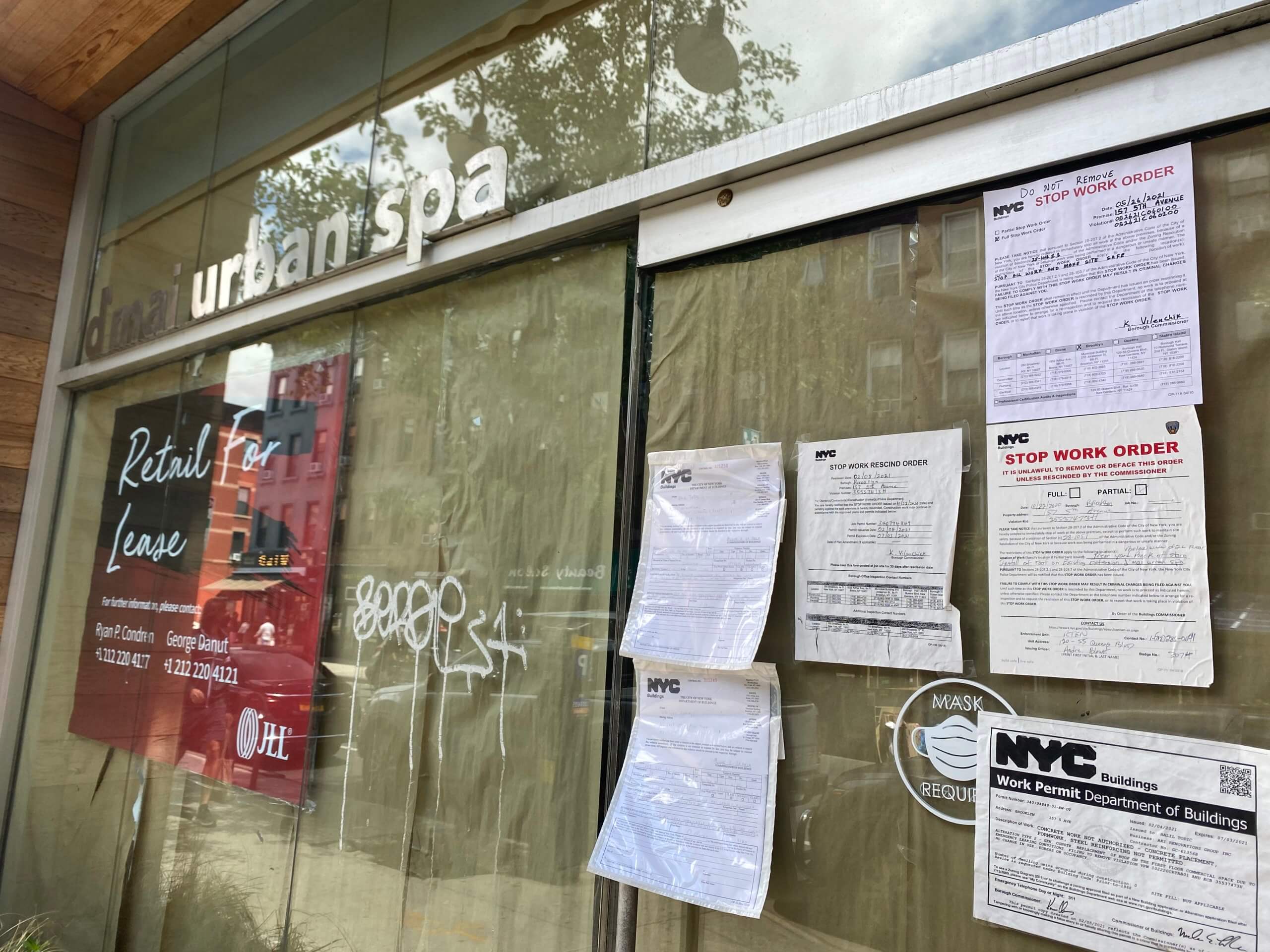
Organizers of 70 Prospect Park West and other affected buildings have been contacting affected tenants to inform them of their rights as renters, and to discuss their options moving forward.
“We’re trying to make contact with a lot of these buildings just to let them know there are others in their situation and give support where we can,” said Emily Parent.
Rent-stabilized tenants in the buildings purchased by Greenbrook are not affected by the non-renewals, and cannot be easily forced out — but many of them have been offered buyouts, or forced to live amid disruptive construction conditions as apartments in their buildings are gutted.
At 38 Prospect Park Southwest in Windsor Terrace, all but a small handful of apartments have been vacated, with a few holdouts in rent-stabilized units. Those that remain claim they have been subjected to constant construction noise and dust, with one tenant rushed to the hospital after suffering an asthma attack allegedly brought on by the dust, according to tenant organizers.
“To be a rent-stabilized person in an environment where the landlord is just negligent and harassing, that’s really tough,” said Charlie Curwen, an organizer at a building on 12th Street recently bought by Greenbrook. “You’re effectively being terrorized.”
The firm has shown a similar ruthlessness towards commercial tenants in the area, such as D’Mai Urban Spa, which closed after failed negotiations with Greenbook owner Greg Fournier during the pandemic, who then sued the spa’s owner over $300,000 in back rent.
“I think he’s wreaking havoc on the neighborhood,” spa owner Daniella Stromberg told Brooklyn Paper in August 2020.
Banding together
Most of the market-rate tenants affected by Greenbrook’s buying spree are younger tenants, or younger families, many of whom lack the resources to dig in for a battle against the well-resourced firm, which counts the London real estate investment firm NW1 Partners as a backer.
For the tenants, the threat of losing their apartments has come as a destabilizing blow, with many market-rate tenants opting to leave instead of fight.
“There’s a part of me that thinks they are targeting young people, and young families specifically,” Nguyen said.
The firm has gone so far as to issue notices to vacate to tenants at 225 13th St., even though the entire building is made up of rent-stabilized units — which organizers suspect was done in hopes that the tenants would be naive.
But when some younger tenants reached out to organizers, they urged them to check their leases and assure they were stabilized, which they were. When the tenants reached out to Greenbrook for clarification, they never heard back.
“They’re betting on people not having the bandwidth to kind of cope with a housing crisis, especially if they are a young family, they have small children, they have lost work in the past year,” said Parent. “I think that’s really been successful for them so far.”
When Curwen was hit with a notice of non-renewal, he managed to renegotiate the lease for his 12th Street building — but with a 30 percent increase in rent. Because of the pandemic, he was able to temporarily negotiate the increase down by about half, but that will expire in a year, and he’ll find his rent increased by $1,000 from what it is now, forcing him to leave his apartment of six years.
“I’m not going to stick around for that,” he said. “It’s just such bad timing.”
While Greenbrook’s practices are not illegal, they are frowned upon even by landlord groups during the pandemic. Jay Martin, who runs the landlord group the Community Housing Improvement Program told the Real Deal that his group has advised members to avoid issuing notices of non-renewal during the pandemic.
Bushwick State Sen. Julia Salazar’s stalled Good Cause Eviction Bill would prevent landlords from evicting tenants or not renewing their lease without proper reasoning — such as failed rent payments, or if the owner wished to occupy the property themselves — but the measure has failed to gather the support it needs to pass in Albany.
“All I want is good cause eviction,” said Curwen. “They need a good cause to not renew my lease, that’s all I want.”
The tenants are now working with Park Slope Councilmember Brad Lander to pressure the firm on the investor level — namely the Texas Permanent School Fund, a fund set up to benefit public schools in the Lone Star State that has a $100 million commitment towards NW1 Partners, one of Greenbrook’s biggest backers.
Lander, along with Assemblymember Robert Carroll, plan to rally with tenants on June 4 to put pressure on the investors, Meanwhile, the organizers are working to connect with as many tenants as they can.
“Market rate, rent-stabilized, we’re all coming together because we recognize that we need each other,” said Curwen.
A spokesperson for Greenbrook Partners declined to comment for this story.













